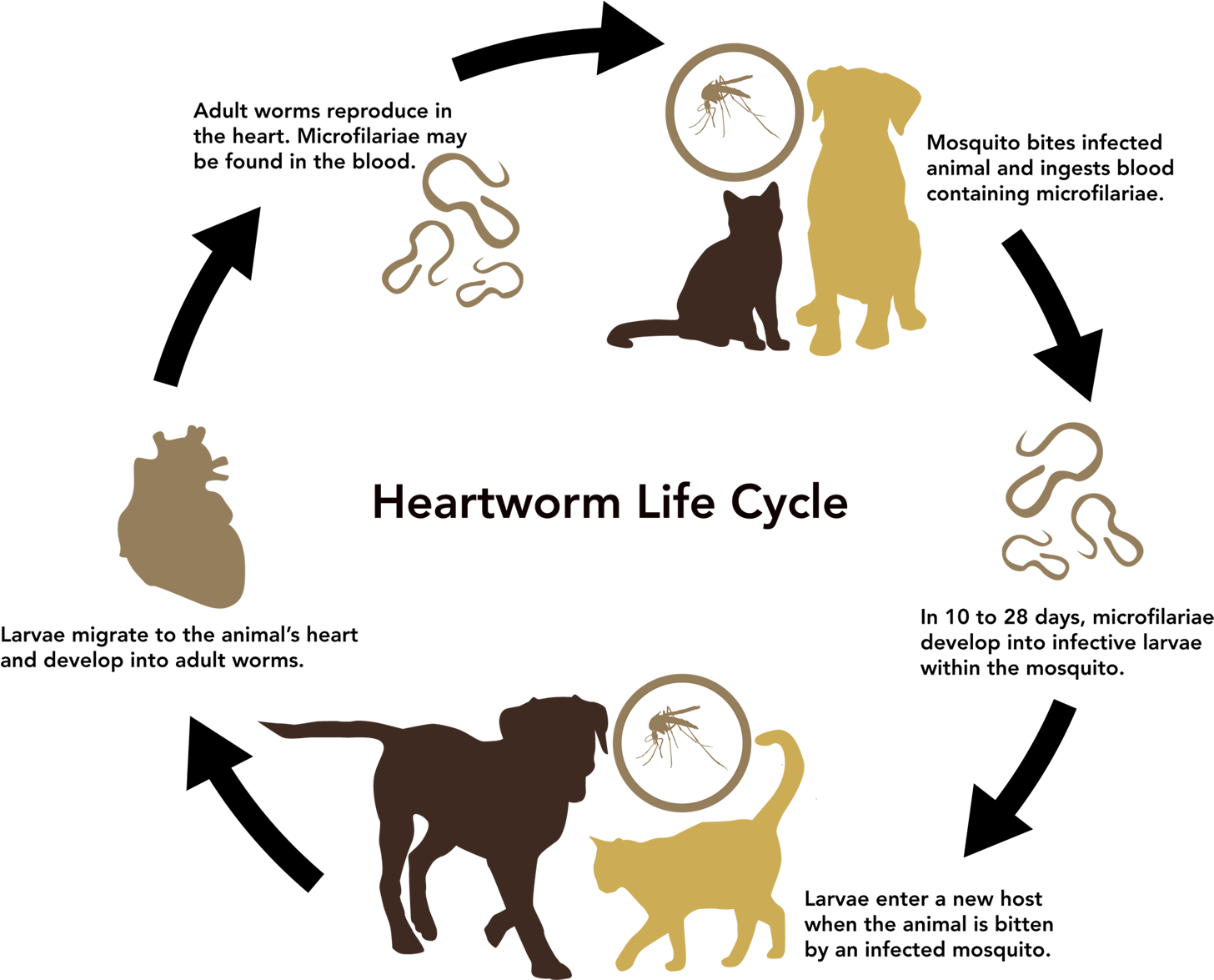Heartworm Prevention: What You Need to Know
Heartworm in pets is easy to prevent but difficult and costly to cure, but what even is heartworm? How does your pet contract a heartworm and what can you do to prevent it? In today’s FleaMail blog we will go over the basics of heartworm. What it is, how to prevent it and what to do if you suspect your pet has been infected. So, let’s start at the start, what is heartworm and how does your pet get it?

How does my pet get Heartworm?
Heartworm is a parasite that lives in the heart of your pet. It is a parasitic worm that feeds on blood and can grow up to 12 inches long! The heartworms life cycle starts with an infected mosquito biting a dog or cat, then introducing larvae into their bodies via the mosquito’s saliva.

Heartworm larvae can stay in a pet’s body for up to a year before reaching adulthood and then moving on to the heart where it will reside, mate and produce more heartworm larvae. There are some other common ways pets contract heartworm besides mosquitoes. They include: heartworm larvae in the rain, coming into contact with other infected pets or even fleas that carry heartworms.
So what does Heartworm do?
Heartworm is very serious business! It can cause severe damage or even death if not treated in time. Some of the problems heartworms may cause are: heart disease, severe lung disease, potential organ damage, fluid build-up around the abdomen and of course death, if left untreated. You should also consider heartworms as a possible reason for any of the following symptoms: coughing, lethargy, fever or weight loss.
I think my pet has Heartworm!
So, what should you do if you suspect your pet is suffering from a heartworm? There are heartworm tests you can have your veterinarian run. They do this by taking a blood sample and checking it for heartworm antibodies. A heartworm test can be run as either: heartworm antigen (heartworms produce proteins that the body reacts to and produces specific antibodies), heart worm antibody (antibodies produced by your pet’s immune system after exposure) or heartworm microfilaria (microscopic larvae in the blood stream). As I’m sure you can tell these tests aren’t always cheap. The best way to fight heartworm is with preventative medications.
Flea & Worming delivered by Aussie Vets monthly!
Try your first month for just $10!
Prevention is key!
As we know parasites are always around, regardless of the season, which is why it’s important to keep your pet on regular heartworm prevention medications throughout the year. The best way to prevent heartworm is by taking your pet for regular preventative treatment. This can be done at a vet clinic where they will administer heartworm prevention medication orally, or heartworm flea and tick control pills. This is done once a month to prevent heartworms from developing in your pet’s system. Thankfully we can handle this for you at FleaMail. We offer heartworm prevention in a monthly pill form, which is easy to give your furry friend and allows you one less thing to worry about when it comes to parasites!

So what now?
There may be a lot of information to digest in this post, but it’s important to know because heartworm is not something you want your pet or family member to get. So, what can we do about this? The best way for pets and humans alike to avoid getting heartworms is by being proactive in prevention. FleaMail offers your pets monthly protection from fleas, ticks and worms shipped straight to your door so you never forget! You can find information about our service through our website FleaMail.com.au. Or contact us directly through Facebook, Instagram or email us at [email protected].

Flea & Worming delivered by Aussie Vets monthly!
Try your first month for just $10!


